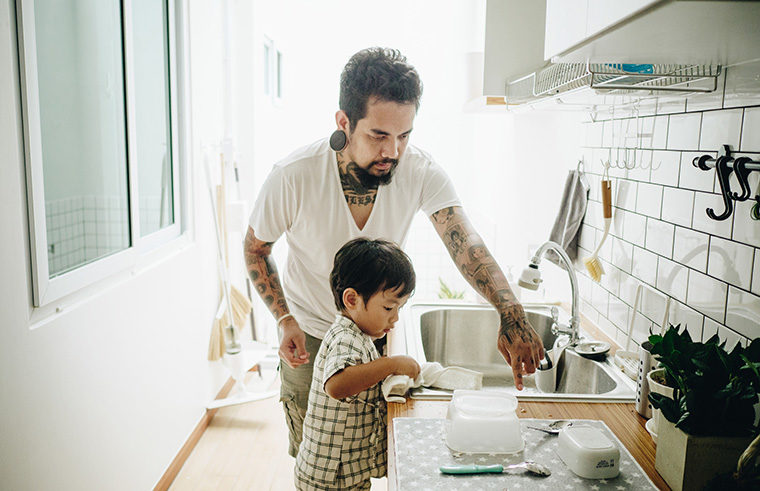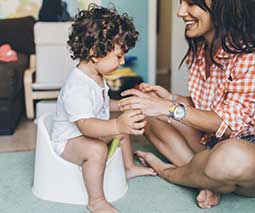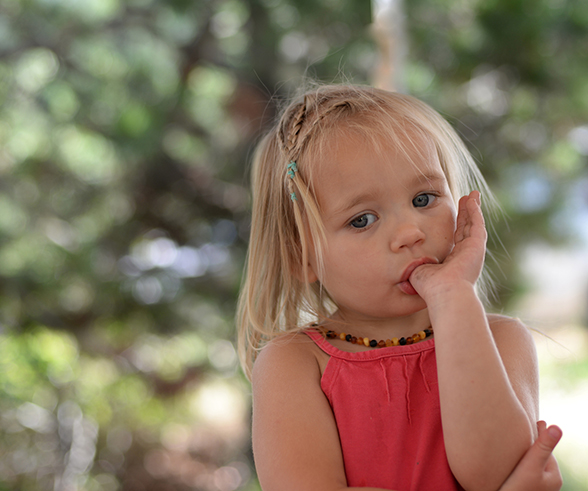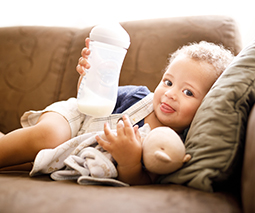The three ingredients you need to grow happy, thriving kids

From the day we are handed our newborn babies, we’re told the importance of connection; making eye contact, skin to skin, even talking to them before they’re coherent enough to respond in the same way.
As they grow older, a little noisier and far more independent, it’s easy to forget that these basic emotional needs remain incredibly important. These connections are ‘the glue’ that keeps us bonded to our children.
Stephanie Wicker is a children’s behavioural specialist based in Sydney, and she says that fostering a child’s sense of connection provides one out of three of their vital emotional needs.
“All children need connection, empowerment and encouragement to thrive,” Stephanie says. “Without them, we encounter the ‘three ds’ of disobedience: disconnection, dis-empowerment and discouragement.”
So what does this mean exactly in the context of our kids? And how can we apply it to different age groups?

Connection
“When kiddos feel disconnected, they stop listening. This can be as simple as hearing “No” to something they want. As soon as they’re no longer on the same page as you, disconnection follows. This leads to defiance, disobedience and avoidance behaviours,” says Stephanie.
To avoid disconnection, Stephanie recommends parents be mindful of their child’s emotional stressors and target their motivation/interests to build engagement and connections throughout the day.
“A good rule of thumb is dedicating ten minutes a day for 1:1 time with each child to build those strong, necessary connections,” says Stephanie.
Empowerment
According to Stephanie, when children feel like they don’t have a choice, their brains begin to resist physiologically.
“Feelings of hopelessness, insignificance and confusion lead to disobedience and defiance,” says Stephanie.
“The solution is to make your child a part of the conversation and solution as often as possible. Find ways to provide choices in everyday activities, no matter how small. Use decision making to boost their cooperation. For example, “Would you like to put your shirt on first, or your pants?” (Replacing, “I told you to get dressed!”)
Encouragement
Because children have very busy growing brains that require lots of learning, they can feel completely wiped out at the end of a big day.
“All of this places high demands on their developing brains,” says Stephanie. “So when you notice your child is avoiding your instructions or feeling overwhelmed, simplify your day. Make it as easy as possible for your youngster to be successful by recognising their needs and supporting them through those moments when they feel spent. ‘Would you like me to help you get dressed today or do it yourself?’ (Replacing, “Hurry up and get dressed! We’re going to be late!” which adds stressors on your child’s brain.)

Applying connection, encouragement and empowerment to children under two
Stephanie says that children as young as 14 months start exploring their autonomy and independence.
“This can sometimes show up as defiance, tantrums and avoidance behaviours. For example, you tell your toddler to hold your hand in the parking lot, and what do they do? Try to run away,” says Stephanie.
“It may feel frustrating for us, but the reality is, that is exactly how a toddler is supposed to behave. Their developmental stage dictates their behaviour. Understand that it’s not their fault nor intentional.”
For children under two, Stephanie recommends parents build trust and rapport through one-on-one time. Foster empowerment by practising walking together in safe areas and encouragement, with short walks that don’t ask too much of your little person.
What these ingredients give to family life
Nurturing these parts of your child’s development will have a positive knock-on effect on all other aspects of their lives.
“Children feel safe to explore their autonomy through risk-taking and problem-solving. They discover and navigate their self-identity naturally without fear of shaming or punishment. By exploring their capability and defining their identity, they develop healthy self-esteem,” says Stephanie.
“We are also contributing to their intrinsic self-control, critical thinking and decision making. We can introduce these amazing life skills early in their development, not only leading to more resilient, capable children but also a calmer, happier home.”
Sounds pretty terrific all around.
 Need some more toddler behaviour advice? Our Parent School toddler experts can help. Click to find out more or book a one-on-one session.
Need some more toddler behaviour advice? Our Parent School toddler experts can help. Click to find out more or book a one-on-one session.









